Fleas nestled in your pet's fur can be an absolute nightmare. There is no shortage of preparations on store shelves with which you can get rid of these unwanted residents. Unfortunately, most of the available products contain highly toxic substances. If you want to take complete care of your pet's health, it is worth using less invasive methods of fighting fleas first.
Contents
Owners of outdoor pets surely know the feeling when the pet starts scratching very intensively. The whole family then wonders if fleas might be the cause. Unfortunately, it is possible. Even if your dog wears a unique collar or you regularly apply flea repellent to their coat, it is often enough to contact another animal - and it already turns out that you have fleas in your home.
Does it mean that it is not worth fighting against them and you should accept this state of affairs? Definitely not! Below, we suggest checking if there are fleas in the house, what fleas do not like, and how to get rid of fleas at home.
Why are fleas in dogs such a problem?

Unlike ticks, which attack dogs seasonally, fleas remain active year-round. Fleas feed on pets and feed on their blood, but they don't have to stay on your pet's skin or fur all the time. Fleas often hide on a dog's bed, in a dog's crate, or even in parquet or laminate flooring cracks.
Usually, in such nooks and crannies, the parasites lay their eggs. Adult fleas draw blood from their host daily and either reside all the time on the host's fur or skin or live in the pet's environment and only jump on the dog when they need to feed. Fleas in a dog cause severe itching, making dogs scratch more often, sometimes even biting. A flea infestation can lead to irritation or wounds on the dog's body.
Is it only dog fleas that threaten dogs?
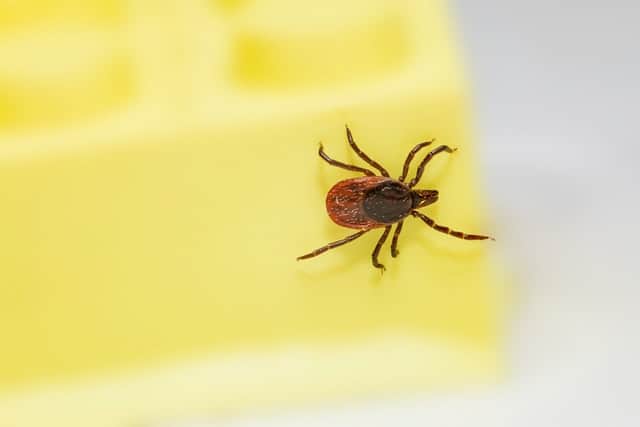
Although there is a type of flea that attacks only dogs, i.e., dog fleas, our four-legged friends are exposed to the attack of other species of fleas, such as human fleas, cat fleas, and even rabbits or hedgehog fleas.
Therefore, it is best to protect your pet with unique anti-flea products. The severe itching that fleas cause can lead to thinning of the coat and even local baldness of the pet, allergic flea dermatitis, or anaemia. Fleas are intermediate hosts for the dog tapeworm, which can infect your pet.
How to find fleas in a dog?

Fleas are tiny parasites that reach a maximum size of 4 mm. They are usually white or grey in colour, while their colour turns brownish red after drinking the dog's blood. Flea droppings are small and dark and may look like black dots on your pet's skin and fur. The parasite droppings that you will find on your dog's skin and coat most often.
The easiest way for you to find fleas is by combing your dog. Do this carefully and slowly, and look at both the coat and the skin of your pet. If you see traces of fleas in your dog, carefully examine his bed, favourite blanket, or dog crate. If you have other pets at home, check their skin and fur for parasites. You can also buy a particular flea test - you can find them at good pet stores or veterinary clinics.
Home remedies for fleas
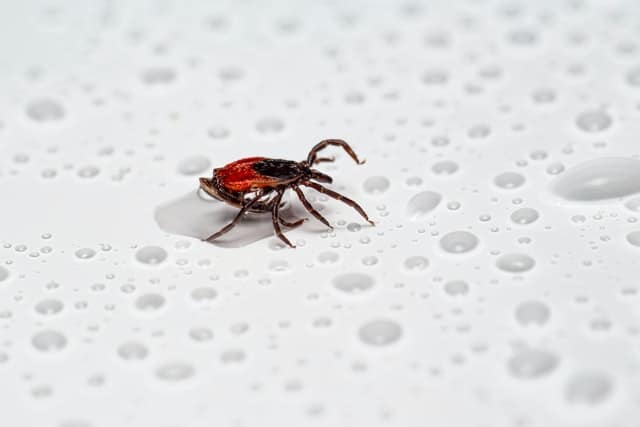
Are you sitting down to a late Sunday breakfast with the whole family, and suddenly you notice your dog scratching intensely? Or perhaps someone in the household is complaining of strange bites and uncomfortable itching around the ankles? You start nervously checking how to get rid of fleas and what will be the cost of a comprehensive cleaning of the entire apartment? When you can't go to the store to buy the proper preparations, home remedies for fleas remain.
Your ally in the fight against fleas will be tea oil: you can use it to create a spray for fleas at home. Pour a few drops into water, and pour the prepared solution into a bottle with an atomizer. Use this spray on upholstery, baseboards, sofa, bed, and dog bed - all places where fleas can appear. You can buy tea oil at any pharmacy, and it is also worth having a bottle just in case.
Another home remedy for fleas is to place a bowl of water under a strong lamplight. The fleas will follow the light and drown in the water, but this is a quick way to remove fleas from your home and will not be enough to remove the larvae or eggs. Modern protective preparations are entirely safe and often allow you to protect your dog against ticks and fleas, and other parasites.
A reliable remedy for fleas in the house is also a spray with permethrin. Still, it is solid preparation, and it is recommended to use it as a last resort when you can thoroughly ventilate the whole house. Knowing what fleas do not like, you can also act prophylactically: use protection for pets and regularly wash your pet's bedding.
Natural flea collar for dogs

The primary purpose of a flea collar (learn more about how an anti-flea collar works is to discourage insects from entering the vicinity of the protected animal). Chemicals often play the role of repellent, but there are also versions on the market that use essential oils' protective properties.
Cedarwood, Chinese mint, eucalyptus, and lavender deter fleas. A collar using these all-natural substances will certainly not harm your pet's health. Even allergy sufferers will enjoy its beneficial effects!
Repellent oils will do well not only in the case of collars. They should also be used near the dog's bed. After washing, the bed can be sprayed with a few drops to chase fleas away from the bed area for good.
Citrus fruits - natural helpers in the fight against fleas

Fleas do not like the smell of citrus fruit. Freshly squeezed juice from grapefruit, orange, or lemon will allow us to effectively chase away these dangerous attackers. By the way, it is worth remembering that, in this case, ready-made citrus oils are not suitable for use.
In the peel of these fruits, there is limonene - an organic compound harmful to dogs. This substance is not found in the juice, so we can use it to rub the dog's coat, prepare a bath or make a convenient spray.
Flea comb
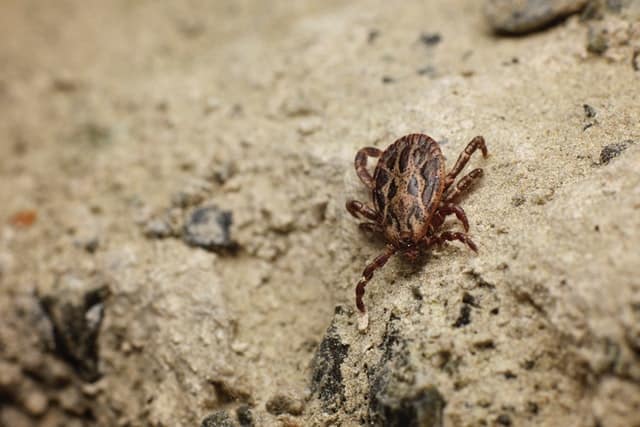
In the struggle with those tiny, cunning parasites, the comb for combing out fleas can be helpful. With its densely placed teeth, we will be able to comb out the intruders from our pet's fur. Unfortunately, this method will require our patience, meticulousness, and time. We have to brush slowly and in such a way that the comb adheres well to the animal's skin.
The groin and the base of the tail are where these unwanted parasites like to nest the most - we should therefore comb them thoroughly. Fleas are incredibly agile and jumping creatures. If we do not want our work to be in vain, we must provide ourselves with a bowl of soap. Right into it should go caught by us insects.
A visit to a dog groomer
Long hair is definitely more challenging to keep clean. It will be difficult for us to comb it carefully. Also, controlling its condition can prove to be quite a challenge. Fleas are most active in the summertime. This is the time when they have the best conditions for reproduction, then they also annoy our pets the most. Therefore, a long-haired pet's summer visit to the groomer can be a natural relief.
Do not forget about bathing!
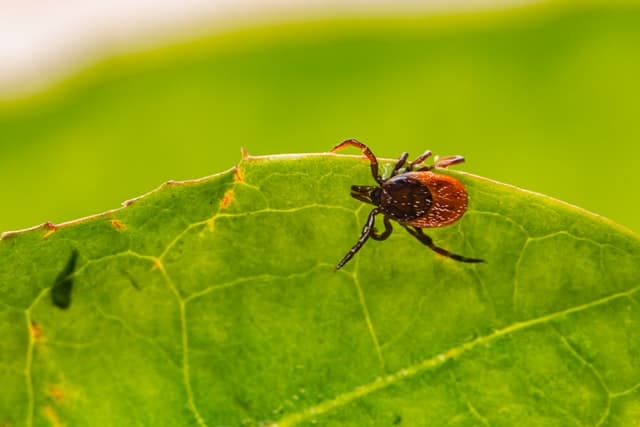
If we want to eliminate fleas, cleanliness should become a priority. In this situation, water can be our best ally. Fleas can't correctly grab a dog's fur. So it is relatively easy to rinse them off our pets. Also, in this case, we can use the help of natural essential oils. Shampoo enriched with flea repellent plant extracts will surely help us eliminate the intrusive newcomers.
Fleas in a puppy - how to deal with them?
When you bring home a puppy from a shelter or kennel, you may often find that the dog has fleas. Reputable kennels usually release puppies to new homes that are already fully dewormed, flea-free, and have essential vaccinations. However, if you notice signs of flea infestation in your puppy, primarily increased scratching that may be accompanied by squealing and restlessness, take your puppy to the vet.
Since your puppy's body isn't fully developed yet and can't break down the chemicals in everyday flea control products, a consultation with your vet is essential. No home remedies for fleas in a puppy will be as safe and effective as an adequately selected remedy by a doctor.
Administering flea products to puppies can lead to serious side effects. The accumulated poison in the body can damage internal organs, cause shortness of breath, vomiting, paralysis, and in extreme cases, even neurological damage. How to get rid of fleas in a puppy safely? Your vet will choose an extraordinary flea remedy for puppies for your pet, which can be used even on dogs under eight weeks old.
Remember to clean your dog's environment
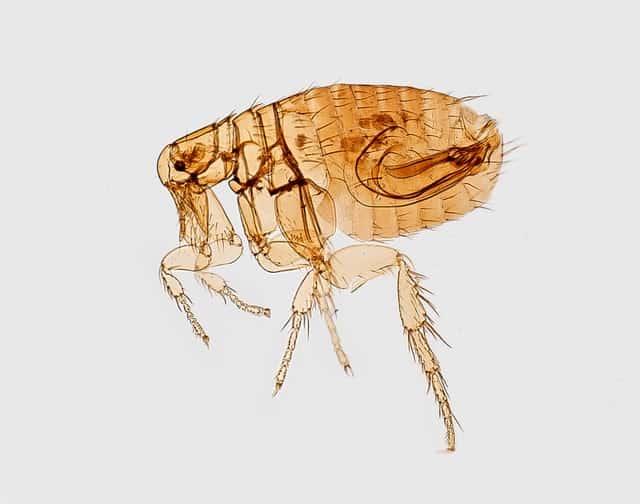
Once you know how to exterminate fleas in your dog, you still need to remember that simply eradicating the parasites on your pet's body is only half the battle. Flea droppings and eggs, and even single, small individuals can still hide in dog pens, bedding, and kennels. Fleas can be found in the crevices of furniture or on carpets, so it is essential to clean all the nooks and crannies of the house and all your dog's equipment.
Even after administering the proper flea treatment, you can still check your pet's coat and skin for individual parasites. Since fleas can be a severe problem, it's also a good idea to check where you store your dog's dry food or wet dog food.




